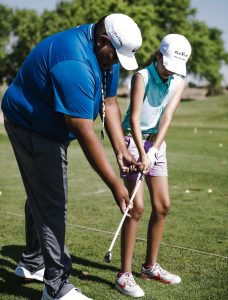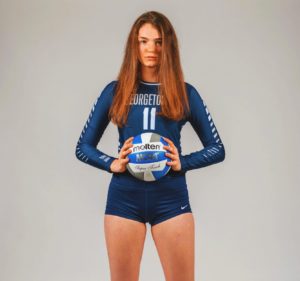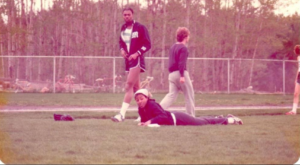If you’re a high school or junior-college athlete looking to land a spot on an NCAA or NAIA roster, you’ve come to the right place.
The advice I’m sharing with you today is not the same cookie-cutter lecture you get at your club team’s recruiting seminars. You already know that you need to be recording your games, registering with recruiting websites and emailing coaches at prospective schools. Let’s be honest, chances are that your parents have carried the bulk of that load for you so far.
Today, I’m going to teach you how to take the recruiting process into your own hands. This article is for athletes who want to set themselves apart from the rest of the pack.
As you read these tips, don’t get overwhelmed, but understand that these tools will make a major difference in your college recruiting experience.
Before we begin, give yourself some credit. The fact that you are doing your due diligence and researching ways to reach your athletic goals already tells me that you are serious about your future.
The recruiting process can be very long and very stressful. Not everyone makes it, and I can’t guarantee that you will. However, committing to all aspects of the process WILL improve your overall athletic experience, whether you make the roster or not.
My first tip for you is to always believe in yourself and NEVER EVER let the recruiting process steal away your love for the game.
Tip 1: Show Your Love For The Game
Way back in 2014, I was a sophomore on the varsity volleyball team at UNC-Chapel Hill.
We had all the pieces to be a really good team but somehow managed to fall short in all of our goals. The summer before my junior year, my coaches asked our team captains why we never posted photos from our open gyms or strength and conditioning workouts.
After scrolling through our Instagram and Facebook feeds, they were able to identify a major culture issue on our team. We weren’t focused on volleyball at all. We loved sharing bits of our lives from pool parties and date nights with our significant others, but rarely did we ever post pictures about volleyball. This sent a message to our coaches that we were “9-5” athletes and weren’t even thinking about volleyball outside of practice or weights.
In this digital age, you can easily show people what you care about by posting about it on your social media platforms.
You’d be wrong to think that college coaches are only looking at your game film and academic transcripts. They want to know who you are outside of sport and if you are leveraging your free time to get better. Coaches want to recruit athletes who show a genuine passion for the sport they play. They don’t have time to teach you how to eat, sleep, and breathe the game after you get on campus.
If you’re eating well, mastering a new skill, playing pick-up on the weekends, or putting in extra work, post it online and tag something like #NCAA(enteryoursport) or #NAIAathlete. Every time you do, you’ll be giving every coach out there an extra reason to choose you over the next girl.
Tip 2: Stay On Good Terms With Your Coaches And Teammates
Making a positive contribution to the environment of your current team is crucial.
If you can’t demonstrate a good attitude at a high school level for 10-15 hours of your time per week, you won’t be able to make it through a 47.5-hour weekly commitment at the college level. Every coach knows that one toxic attitude can derail an entire season.
The very last thing a college coach wants to hear is that their favorite recruit is always showing up late to practice and doesn’t get along with any of her teammates.
The easiest way you can stay on good terms with your team is to demonstrate basic accountability. Accountability to yourself, your teammates, your coaches, your teachers, and your parents.
Be early. This means taking into consideration extra traffic before you leave for practice. Be prepared. Pack the right clothes the night before and be ready to practice as soon as you walk in the gym. Be eligible. Keeping up your grades is the first step in even being able to play. Coaches don’t want to recruit a player who they fear will end up on academic probation. Be smart. Don’t find yourself in sticky situations where you end up grounded and missing the team barbeque.
Some of this may sound simple, but little things like these make the deepest impressions on college recruiters.
Tip 3: Spend Extra Time On The Fundamentals

If you think college athletes are above practicing fundamentals, you’d be wrong.
When I was in college, about 70% of any given practice was structured around basic skill execution. The other 30% was focused on playing. We got really good at doing the little things, and were rewarded for it with multiple conference championships and Top 15 finishes.
Fundamentals are the foundation of your game. Do not make the mistake of believing that athleticism alone will guarantee you a college offer.
Record yourself in practice to identify what you need to work on. If it’s footwork or ball control, ask your coaches to toss you a few extra balls during your water break. If it’s a skill you can refine on your own, take ten minutes before practice to work on it. College coaches want athletes who are able to execute basic skills in a fast-paced environment.
Building a strong foundation before you get to college will allow you to contribute to the team’s success right away.
Tip 4: Watch The Professional And Collegiate Version Of Your Sport (A Lot)

Watching the professional or college version of your sport is the equivalent to free tuition. It’s a chance for you to observe the premier athletes in your sport.
Take notice of their form. What do they do well? How do they execute skills? How do they move on offense vs. defense? Write down their habits and think about the changes you can make in practice. Watching in-game situations is the best way to improve your game IQ.
College coaches want to know what type of legacy you will leave on their program.
Watching professional and collegiate teams compete will help you crystalize your vision. Follow the NCAA Tournament or conference championships for your sport. How will you help your future team get there?
College coaches love goal-oriented athletes and you need to know yours like the back of your hand.
Your mission statement might be, “I want to make fewer errors and score more points on offense. I want to win a conference championship at (name of school) and someday be an All-American.”
Watching athletes who have achieved those goals at the highest level is the first step in your journey towards replicating that success.
Tip 5: Remember Your WHY

My final piece of advice for you is to remember why you started playing your sport to begin with.
Remember the little girl who nervously showed up for her very first try-out. Remember the first time you scored a big point in a game. Hold on to those small victories. Take a moment to look at yourself now and appreciate how far you’ve come. You should feel proud.
Your sport has taught you resilience, commitment, accountability, and how to work with others.
Be grateful for the opportunities it’s provided you. Playing in college might seem like the most important thing to you right now, but it’s the memories with your teammates and the little moments of improvement that you’ll take with you for life.
Don’t play to impress a college coach or family member who might be watching you. Play to honor that little girl inside of you who promised herself, years ago, that she was going to make it.



